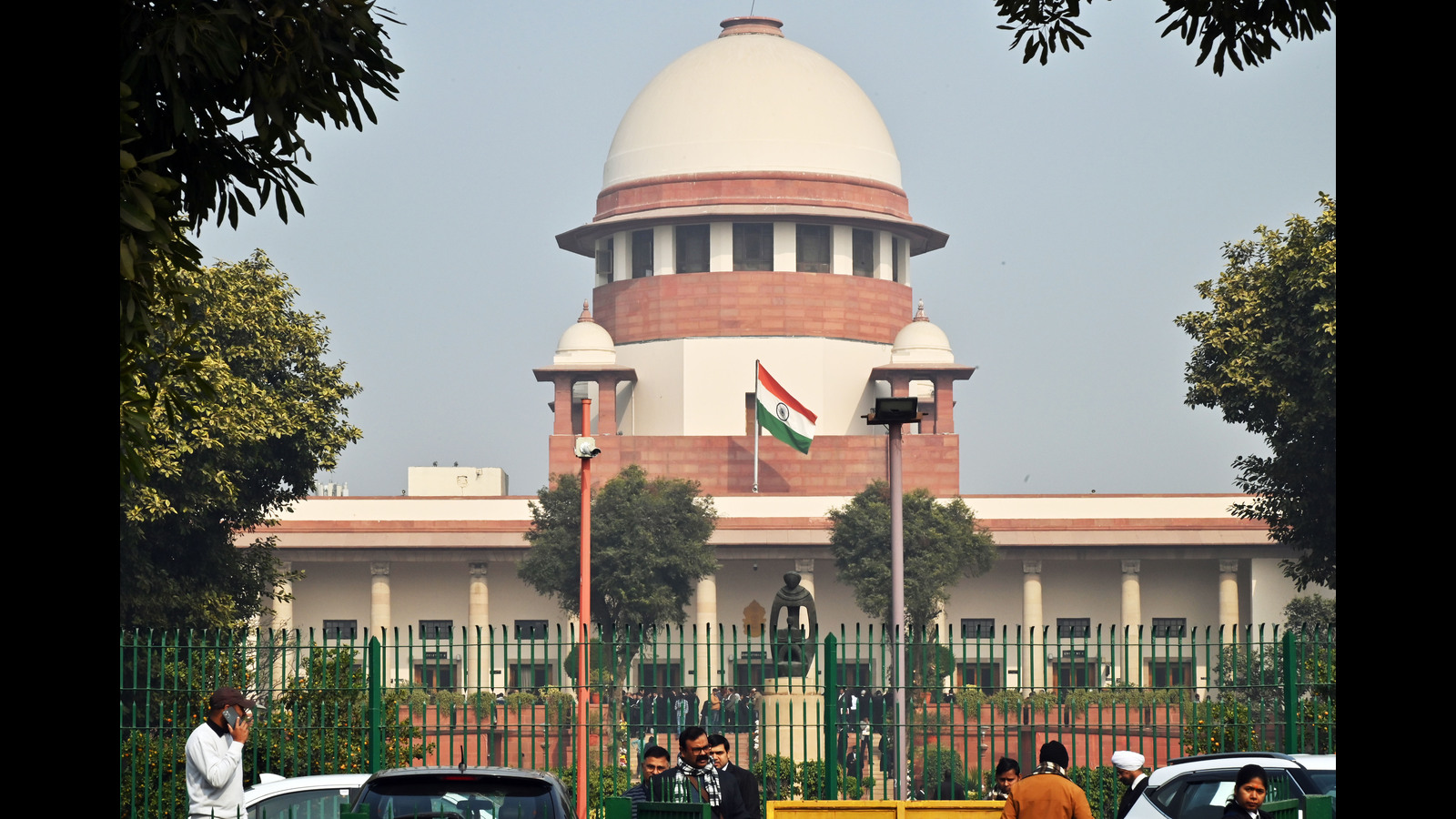On March 2, a panel of the Supreme Court’s (SC) three most senior judges recommended the elevation of Moksa Kiran Thakkar to the Gujarat High Court (HC). The panel noted that Thakkar is a skilled lawyer with civil and criminal practice. The panel further noted that Thakkar has a “good personal and professional image and we have not found anything adverse in terms of his integrity.” The panel noted that Thakkar has overcome a physical disability and therefore his appointment “will bring greater inclusivity to the composition of the High Court.”
Premium On March 2, the Supreme Court’s (SC) Council of Chief Justices, consisting of three most senior judges, recommended the elevation of Moksa Kiran Thakkar to the post of judge of the Gujarat High Court (HC). (A) {{^userSubscribed}} {{/userSubscribed}} {{^userSubscribed}} {{/userSubscribed}}
While the resolution mentions that Thakkar has a physical disability, the nature and extent of the disability is unclear. This is the first time that the Supreme Court has nominated a lawyer with a disability for promotion to the judicial service. In 2019, in the case of V Surendra Mohan v. State of Tamil Nadu, the Supreme Court had upheld a decision rejecting a candidate with more than 40-50% visual impairment as a judge of the Madras High Court, holding that moderate eyesight and hearing are essential for the performance of the job. In a 2021 decision in the case of Bikash Kumar v. Union Public Service Commission and Others, a three-judge bench of the Supreme Court had overturned Mohan’s decision and ruled that the decision did not take into account the principle of reasonable accommodation.
{{^userSubscribed}} {{/userSubscribed}} {{^userSubscribed}} {{/userSubscribed}}
In Vikash Kumar, the Supreme Court noted that the Mohan judgment did not consider whether the appellant could perform the duties of a Civil Judge (Subordinate Judge) after being provided with reasonable accommodation on the grounds of his disability. The analysis would have required consideration of “the specific accommodation required, the cost of providing it, reference to the availability to other judges in India and abroad who are more than 40-50% visual/hearing impaired to perform judicial duties after being provided with the required accommodation and other factors”. Vikash Kumar, though not dealing with the appointment of a judge per se, dealt with the crucial issue of clarifying the principle of reasonable accommodation. The appointment of Thakkar is a major step towards operationalising the Supreme Court’s judgment in Vikash Kumar.
{{^userSubscribed}} {{/userSubscribed}} {{^userSubscribed}} {{/userSubscribed}}
The importance of reasonable accommodation provided to police officers with disabilities was also highlighted by the Supreme Court in the case of National Platform for the Rights of Persons with Disabilities v. Ministry of Empowerment of Persons with Disabilities, where it was orally noted that blanket exclusion of Persons with Disabilities (PwDs) from a particular category of jobs (in this case, police) may not be sustainable without considering the possibility of applying the principle of reasonable accommodation.
Mr. Tucker’s promotion is significant because, through his appointment, the Supreme Court has acknowledged that persons with disabilities are constitutionally qualified and eligible to serve as high ranking Supreme Court judges, and to serve as judges generally. This move may provide opportunities for persons with disabilities to advance in the judicial system.
{{^userSubscribed}} {{/userSubscribed}} {{^userSubscribed}} {{/userSubscribed}}
The appointment of persons with disabilities to the bench has intrinsic as well as instrumental value. In essence, such appointments negate the theory that persons with disabilities are not fully capable of discharging responsibilities. This point is significant given that the Judges (Investigation) Act, 1968, read with Article 124 of the Constitution, envisages “suspicion of physical and mental incapacity” as a ground for disqualification of a judge (see Sections 3(5)–3(7) of the Act). [seeSections3(5)–3(7)oftheAct
Such an appointment also has instrumental value: As a woman and a person with a disability, Tucker will imbue her rulings with a greater sense of respect for diversity and inclusion. The panel of justices correctly highlighted her achievements without distinguishing between her complex relationship to disability.
However, the Council could have avoided using the word “overcoming” in describing Mr Tucker’s interaction with disability. But the truth is, disabled people do not overcome their disabilities. We learn to live with our disabilities so that they do not become our disabilities. Hence, the words “tackling” or “dealing” rather than “overcoming” might have been more appropriate. Keeping this minor issue aside, let us hope that the Government will promptly notify Mr Tucker’s appointment. Our judiciary and society will be immensely benefited by this appointment.
{{^userSubscribed}} {{/userSubscribed}} {{^userSubscribed}} {{/userSubscribed}}
Rahul Bajaj is co-founder of Mission Accessibility, Senior Associate Fellow at Vidhi Law and Policy Centre and Attorney at Ila Law.
Sanjay Jain is Professor of Law at the National Law School, Bangalore.
Opinions expressed are personal

